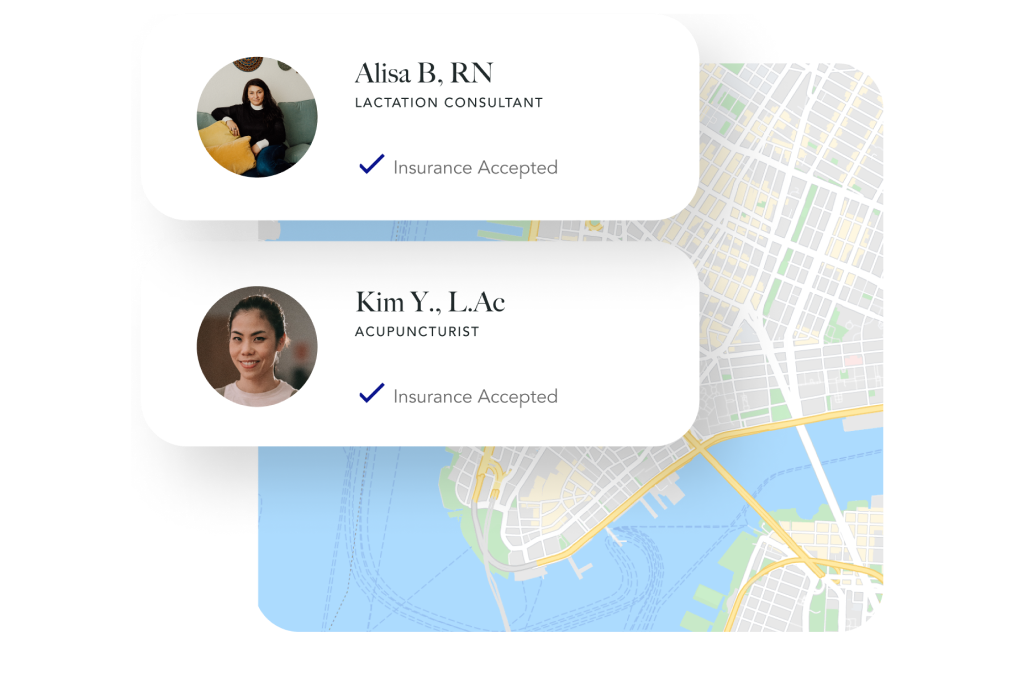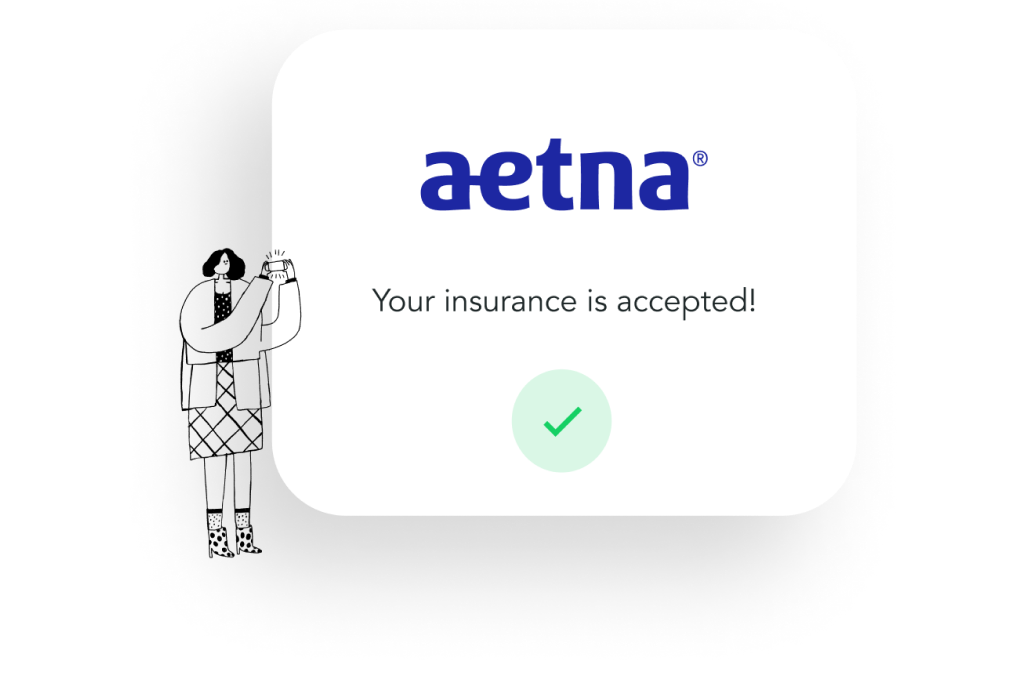
Our Specialties
Find Disordered Eating Nutritionists Near Me
90% of Zaya patients pay $0 for one-on-one nutrition counseling with a registered dietitian.
Find A Disordered Eating Nutritionist Near MeBrowse our directory of disordered eating nutritionists — and book your visit online using your insurance.

Find the right care for you.

Pay with your insurance.

Book your visit online.
Get a provider who gets you.
Our providers are nutrition experts and take the time to get to know you and your needs.
Real talk from real patients.
Have questions? We’ve got answers.
For more information about how Zaya works, check out our frequently asked questions.
View FAQsMore about eating disorders & our disordered eating nutritionists
What are eating disorders?
Eating disorders affect at least 9% of the population worldwide and approximately 9% of the U.S. population. These disorders are serious mental health conditions characterized by disturbances in eating behaviors and attitudes toward food and weight.
According to the American Psychiatric Association, eating disorders involve a range of conditions that cause severe disturbances in eating patterns and behaviors. Individuals with eating disorders often have an intense fear of gaining weight and a distorted body image and exhibit extreme behaviors related to food and weight control.
These disorders can have severe medical complications and can significantly impact a person’s physical and mental well-being. Seeking professional help and early intervention is crucial for effective treatment and recovery. The cost of eating disorder treatment varies widely depending on the type. Working with a dietitian is one of the cheapest, especially considering many dietitian visits are covered by insurance, while in-patient treatment is much more expensive.
What are the most common eating disorders?
The most common eating disorders include:
- Anorexia nervosa. Anorexia nervosa involves an obsession with weight and food consumption. Individuals with anorexia often restrict their food intake, engage in extreme exercise, and use other unhealthy measures to achieve and maintain low body weight.
- Bulimia nervosa. Bulimia nervosa is characterized by recurrent episodes of binge eating followed by compensatory behaviors such as self-induced vomiting (purging), excessive exercise, or the misuse of laxatives or diuretics to prevent weight gain.
- Binge eating disorder. Binge eating disorder is characterized by recurrent episodes of consuming large quantities of food in a short period of time, accompanied by a feeling of loss of control. Unlike bulimia, individuals with binge eating disorder do not engage in compensatory behaviors to counteract the binge eating episodes.
What are the risks of eating disorders?
Eating disorders pose significant risks and can severely affect individuals’ physical and mental well-being. These disorders affect not only the body but also various aspects of a person’s life. It is important to be aware of the potential risks and complications associated with eating disorders.
The risks of eating disorders include:
- Malnutrition. Insufficient intake of essential nutrients can lead to imbalances and deficiencies, affecting overall health and organ function.
- Electrolyte imbalances. Disrupted eating patterns can cause imbalances in electrolytes such as potassium, sodium, and magnesium, which are crucial for proper bodily function.
- Cardiovascular problems. Eating disorders can lead to low heart rates, irregular heart rhythms, low blood pressure, and even heart failure.
- Gastrointestinal issues. Frequent vomiting, laxative abuse, or restricted food intake can damage the digestive system, leading to constipation, acid reflux, and other gastrointestinal problems.
- Bone density loss. Inadequate nutrition and hormonal changes can result in weakened bones, increasing the risk of fractures and osteoporosis.
- Muscle wasting. Insufficient calorie intake can cause muscle wasting, leading to weakness, fatigue, and loss of physical strength.
- Mental health complications. Eating disorders are often associated with other mental health disorders such as depression, anxiety, self-harm, and substance abuse.
- Social isolation and relationship difficulties. The preoccupation with food and body image can strain relationships, isolate individuals from social activities, and impact overall quality of life.
When to see a disordered eating nutritionist
When it comes to eating disorders, seeking guidance from a disordered eating nutritionist specializing in this field can be beneficial in promoting recovery and restoring a healthy relationship with food.
Disordered eating nutritionists are equipped with the knowledge and expertise to provide specialized care for individuals with eating disorders. Here are some situations where it is advisable to consider consulting a nutritionist specializing in eating disorders:
- When diagnosed with an eating disorder. If you have received a diagnosis of anorexia nervosa, bulimia nervosa, binge eating disorder, or any other form of disordered eating, a specialized nutritionist can be an essential part of your treatment team.
- During the recovery process. Even if you have already started your journey toward recovery, collaborating with a nutritionist can provide ongoing support and guidance to navigate the challenges associated with restoring a healthy relationship with food and body image.
- When struggling with meal planning and food choices. Nutritionists can help create personalized meal plans that accommodate your individual needs, preferences, and dietary restrictions while promoting balanced nutrition and addressing specific challenges related to your eating disorder.
- If experiencing physical health complications. Eating disorders can have a detrimental impact on physical health, including nutrient deficiencies, electrolyte imbalances, and gastrointestinal issues. A nutritionist can help address these concerns and develop strategies to support your overall well-being.
- When needing support in establishing a healthy relationship with food. Nutritionists specializing in eating disorders can assist in shifting your mindset and behaviors around food, promoting intuitive eating, challenging distorted beliefs, and fostering a positive and sustainable approach to nourishment.
How Zaya Care’s disordered eating nutritionists can help
Disordered eating nutritionists at Zaya Care can play a vital role in supporting individuals on their journey to recovery and a healthier relationship with food. Here’s how they can help:
- Personalized treatment plans. Our nutritionists create individualized treatment plans based on specific needs, eating disorder type, and personal goals.
- Nutritional education and guidance. Our nutritionists provide evidence-based nutritional education, dispel myths, and promote balanced eating practices.
- Meal planning and support. Our nutritionists help develop structured meal plans, offering strategies for portion control and food variety.
- Addressing nutrient deficiencies. Our nutritionists identify and address nutrient deficiencies, guiding individuals on incorporating nutrient-rich foods.
- Collaborative approach. Our nutritionists work closely with the treatment team, fostering a comprehensive and integrated approach to recovery.
- Thorough assessments. Appointments involve comprehensive assessments of medical history, eating behaviors, and nutritional status.
- Ongoing follow-up. Follow-up appointments ensure progress monitoring, treatment plan adjustments, and continued guidance and support.
Benefits of working with a Zaya Care disordered eating nutritionist
Working with a Zaya Care nutritionist specializing in eating disorders offers numerous benefits for individuals seeking recovery and improved well-being. Our nutritionists provide personalized support and guidance tailored to each person’s unique needs and challenges.
They offer a safe and non-judgmental space where individuals can explore their relationship with food, gain knowledge about nutrition, and develop healthier eating habits.
By working with a Zaya Care disordered eating nutritionist, individuals can gain a deeper understanding of their triggers and patterns related to disordered eating and learn practical strategies to overcome them.
Our disordered eating nutritionists also collaborate closely with the treatment team, ensuring a comprehensive and integrated approach to recovery and providing ongoing support throughout the healing journey.




